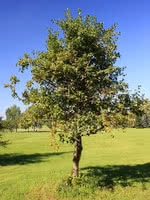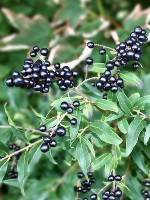Mon-Fri 9am - 5pm Mountain time
Washington Hawthorn vs Wild Privet
Crataegus phaenopyrum
Ligustrum vulgare
CUSTOM GROW
NOT AVAILABLE THIS SEASON - MIGHT RETURN
Washington Hawthorn is an attractive ornamental shrub that is dense enough to plant as a privacy screen. It produces clusters of white blooms in late spring to early summer.
Washington Hawthorn's red berries last throughout winter, bringing squirrels and birds to your property. In the fall, its foliage turns beautiful orange, scarlet, or purple.
One of the most overlooked trees on the prairies. This tree is often used as rootstock, a wildlife attractor, or a boulevard hedge. Give this one a second look.
This species is also known as one of the more salt-tolerant species for those with saline soils.
Please note: this plant is poisonous to dogs.
Wild Privet is a fast growing ornamental shrub that is well suited for forming hedges and privacy screens. It will retain its leaves in warmer climates but drops them in colder areas. They have small white flowers, though the smell is often considered unpleasant. While the berries are inedible, they are a good food source for many bird species.
It is recommended to prune Wild Privet immediately after flowering, as it can readily self seed. It is deer and rabbit tolerant. It can grow in dry areas, on slopes, and withstand the wind making it well suited for many growing conditions.
Washington Hawthorn Quick Facts
Wild Privet Quick Facts
Toxicity: If ingested, all parts of this plant will cause severe discomfort. Toxic to dogs, cats, and horses
In row spacing: 0.9 m (3 ft)

